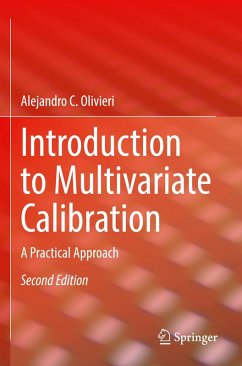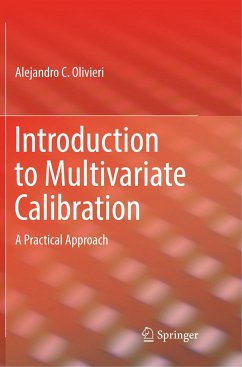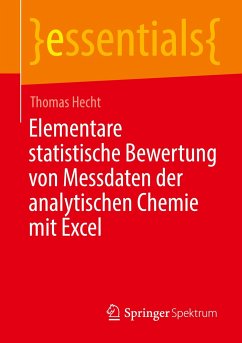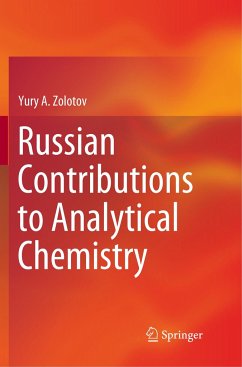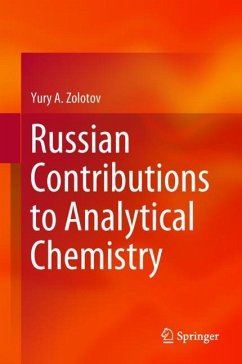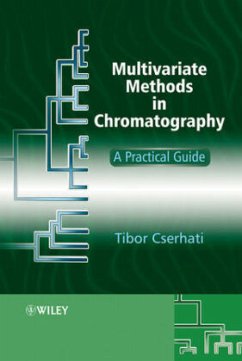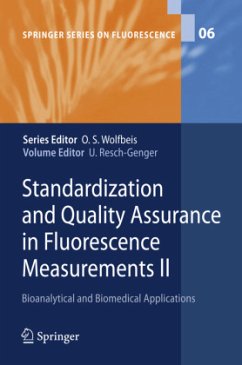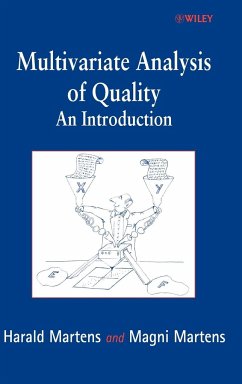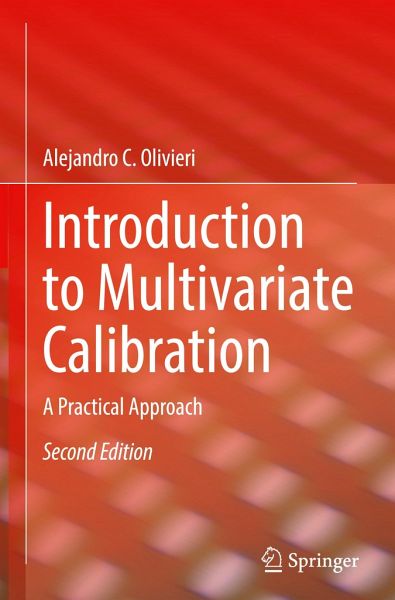
Introduction to Multivariate Calibration
A Practical Approach
Versandkostenfrei!
Versandfertig in 6-10 Tagen
61,99 €
inkl. MwSt.
Weitere Ausgaben:

PAYBACK Punkte
31 °P sammeln!
This book contains several new sections that provide even more in-depth knowledge on the topics. New content on the classical least-squares model, which shows its advantages and limitations in greater detail, was added. Additionally, the book contains a new section on the inverse least-squares model, which explains how it differs from the classical model and its applications in chemometrics. Furthermore, a new chapter on principal component analysis, which covers the concept in greater detail and its applications in chemometrics, is added. This book also includes several real-world examples to...
This book contains several new sections that provide even more in-depth knowledge on the topics. New content on the classical least-squares model, which shows its advantages and limitations in greater detail, was added. Additionally, the book contains a new section on the inverse least-squares model, which explains how it differs from the classical model and its applications in chemometrics. Furthermore, a new chapter on principal component analysis, which covers the concept in greater detail and its applications in chemometrics, is added. This book also includes several real-world examples to help you better understand the topic. Overall, this book provides the reader with even more comprehensive knowledge on chemometrics and multivariate calibration, making it an essential resource for students and professionals alike.



